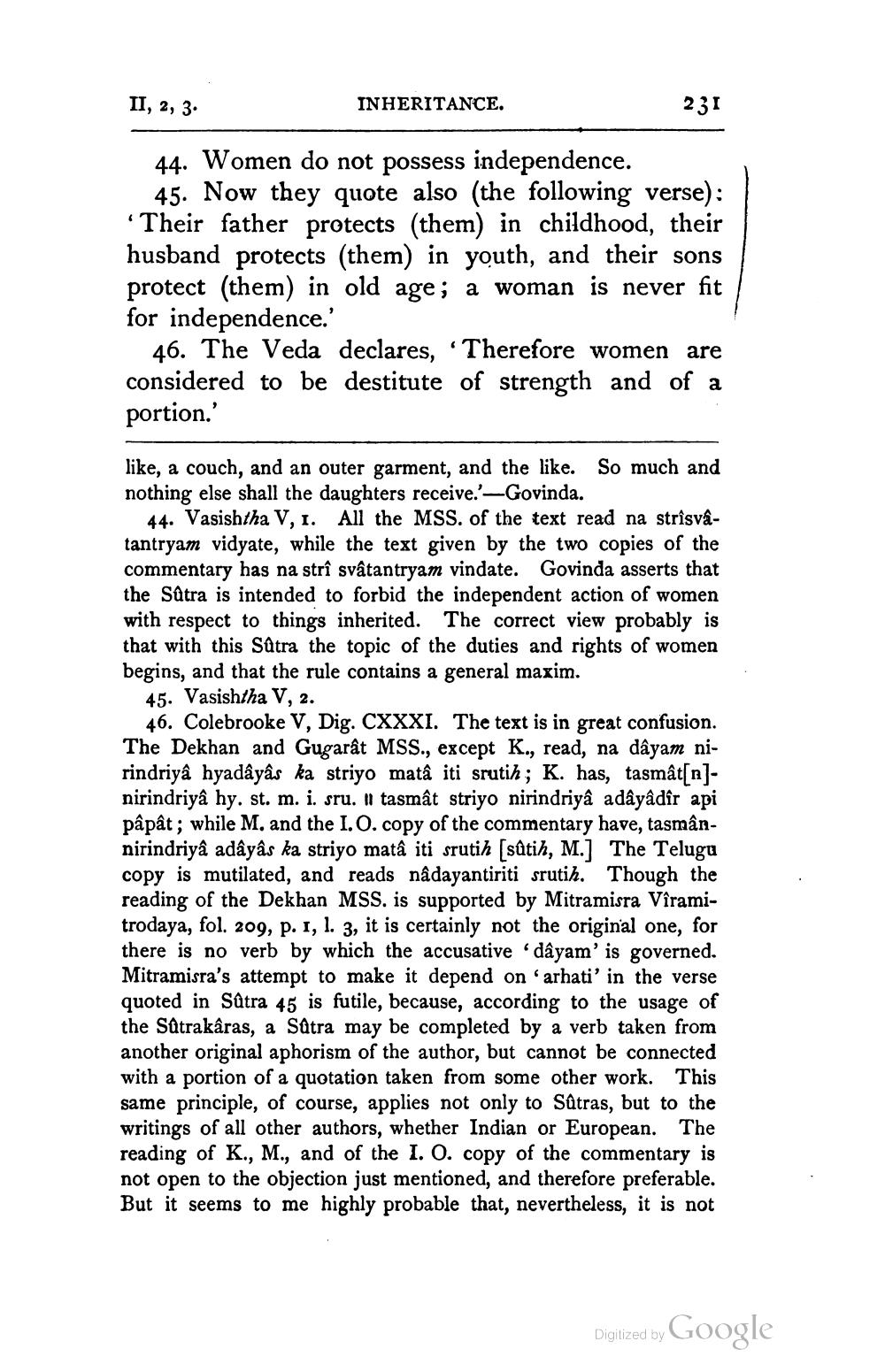________________
II, 2, 3.
INHERITANCE.
231
44. Women do not possess independence.
45. Now they quote also (the following verse): *Their father protects (them) in childhood, their husband protects (them) in youth, and their sons protect (them) in old age; a woman is never fit for independence.
46. The Veda declares, Therefore women are considered to be destitute of strength and of a portion.'
like, a couch, and an outer garment, and the like. So much and nothing else shall the daughters receive.'-Govinda.
44. Vasishtha V, 1. All the MSS. of the text read na strîsvatantryam vidyate, while the text given by the two copies of the commentary has na strî svậtantryam vindate. Govinda asserts that the Sûtra is intended to forbid the independent action of women with respect to things inherited. The correct view probably is that with this Sūtra the topic of the duties and rights of women begins, and that the rule contains a general maxim.
45. Vasishtha V, 2.
46. Colebrooke V, Dig. CXXXI. The text is in great confusion. The Dekhan and Gugarât MSS., except K., read, na dâyam nirindriyâ hyadâyâs ka striyo mata iti srutih; K. has, tasma nirindriyâ hy. st. m. i. sru. Il tasmât striyo nirindriyâ adâyâdîr api pâpât; while M. and the I. O. copy of the commentary have, tasmânnirindriyâ adâyâs ka striyo matâ iti srutih (sütih, M.] The Telugu copy is mutilated, and reads nâdayantiriti srutih. Though the reading of the Dekhan MSS. is supported by Mitramisra Vîramitrodaya, fol. 209, p. 1, 1. 3, it is certainly not the original one, for there is no verb by which the accusative dâyam' is governed. Mitramisra's attempt to make it depend on arhati' in the verse quoted in Sätra 45 is futile, because, according to the usage of the Satrakâras, a Sätra may be completed by a verb taken from another original aphorism of the author, but cannot be connected with a portion of a quotation taken from some other work. This same principle, of course, applies not only to Sûtras, but to the writings of all other authors, whether Indian or European. The reading of K., M., and of the I. O. copy of the commentary is not open to the objection just mentioned, and therefore preferable. But it seems to me highly probable that, nevertheless, it is not
Digitized by Google




